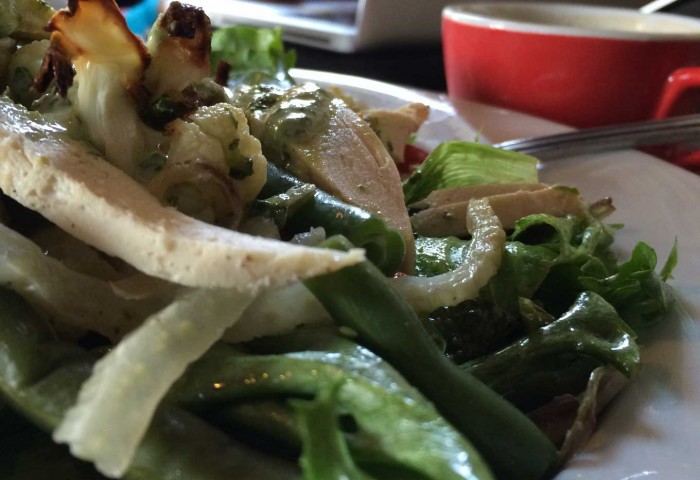“Travel the world. Build cool things. Meet awesome people.” That’s the mission statement of Hacker Paradise, one of the original traveling communities for digital nomads.
Co-founder Casey Rosengren answered our questions about his program and told us why it stands out in an increasingly crowded field of destination coworking options.
Q: Let’s start with the basics. What is Hacker Paradise and how were you inspired to start it?
Hacker Paradise is the premier program for developers, designers, and entrepreneurs who want to travel while staying productive and growing professionally. We started in 2014, and have had over 400 people from 30 countries join our community.
In 2014, I’d just graduated from college and was recovering from burnout from the last startup I’d been working on. I wanted to spend a year or two freelancing and traveling, and through a series of serendipitous events, connected with a hotel owner in Costa Rica who had a bunch of empty rooms during their low season.
I pitched him on trying to fill his hotel with a “programming retreat.” For him, it was a way to boost his revenue in the low-season, and for me, it was a way to access a thriving tech community while living on the beach in Central America.
My co-founder Alexey came on board, and around 30 people joined that first trip. Soon after, we decided to work on it as a company, and we opened up to designers, non-technical entrepreneurs, and other creative types. Hacker Paradise was born.
Q: A few months ago I spoke with Michael Youngblood. He remembered a phone call between the two of you that took place in 2014 after the first Hacker Paradise trip and before the inaugural Unsettled journey. The conversation was prompted by the fact that neither of you was aware of another program offering this kind of experience at that time. Did you see this as the birth of a movement of sorts?
Yep, I remember that phone call! I was actually in the Philippines at the time, scouting out locations in Southeast Asia for our second trip.
It was a really cool time to be in the space. I think we were both seeing a groundswell of interest in the work & travel lifestyle, and we were both in this phase of, “We’re creating these really cool experiences for ourselves and our friends… maybe there’s a business here?”
It’s been really cool to see things develop since then. Three years in, digital nomadism feels like it’s beginning to go mainstream.
Q: I’ve heard the terms “destination coworking” and “coworking retreats” used to describe your program and others like it. Is either term an accurate description of the experience you offer to participants?
I don’t think either term fully encompasses what Hacker Paradise offers.
We’re far beyond your typical coworking experience. You’re living, traveling, and working with an amazing set of creative people, which means you create much deeper relationships than in the traditional coworking environment. Since you’re in amazing locales, you might end up climbing a mountain together or scuba diving on your off time with the group. Our format allows people to get stuff done but also to make meaningful, often lifelong friendships.
We also put a lot of work into community and events—it’s our special sauce that’s hard to understand until you’ve personally experienced it. We have potlucks and social events every week, and we have a number of other professional development events, like hackathons, demo nights, talks/lectures, and skill exchanges that happen on a weekly or bi-weekly basis.
Finally, we really care about cultivating a creative culture. Not everyone works in tech/startups, but we do make sure everyone has a creative hobby, skill, or project that they’re working on, which creates a really stimulating, creative, collaborative atmosphere.
Q: What do you think explains the popularity of these programs?
In the past, you had to choose between either traveling or your tech community at home (and the professional opportunities that come with it). Now we provide access to both: adventure and professional growth.
For example, when we were in Tallinn, we had Taavi Kotka, the CIO of Estonia, come give a talk to our group. In Japan, we had lunch with Yukihiro Matsumoto, creator of the Ruby programming language. On our upcoming trip to South Africa, we’ll be organizing a Meetup w/ Matt Winn, a Hacker Paradise alumni who is CEO of Over, one of the hottest startups in Cape Town.
These are the types of experiences you couldn’t really find if you were traveling solo, but we can pull off as part of a curated group.
Q: Who does your program most appeal to? What characteristics do the participants tend to have in common, if any?
One main characteristic that everyone shares is that they are looking to grow professionally or do creative work while on the road.
Our program appeals to a few different groups of people:
- Freelancers or remote workers who want to go nomad
- Experienced digital nomads who are looking for more community
- Early-stage entrepreneurs who want to travel, but still make progress on their ideas
- People on sabbatical, who want to work on personal projects while on the road
- Employees of companies with liberal leave policies
Hacker Paradise isn’t a vacation—people are looking to make serious progress on their projects or stay on top of their client work while traveling.
Q: How do you select the locations for your trips?
We look for dynamic places that offer adventure and excitement but also places where people can get stuff done. Since we’ve been around for so long, we also look for places where we have some kind of alumni connection to the local tech scene.
Q: Cities such as Chiang Mai and Medellín are considered digital nomad “hubs” and are hot destinations for programs like Hacker Paradise. Given the growing popularity of these programs, do you have any concerns about the impact on local communities and economies?
We try to connect to the local community, for example, by inviting one or two local developers or designers to join our community in the places we visit. In our small way, we hope that contributes to knowledge transfer and international collaboration, and we’ve actually seen people end up working together long-term as a result.
Also, digital nomads still consist of only a tiny portion of the overall tourism. Still, we do want to continue to be aware of how we’re affecting the places we visit and to give back.
Q: How do you differentiate yourself from similar programs? What is unique about the Hacker Paradise experience?
- We focus on building a tech/creative community. We make sure everyone has a creative project.
- As we are going on year four, we developed a very strong sense of community supported by dynamic community-building events.
- Our program is one month, but with an amazing alumni community, there’s always someone to connect with after you spend a month with us.
- We hire awesome facilitators who have significant experience in tech. They’re not just tour leaders.
Q: A question I’ve long had: How can people truly experience these destinations from behind a laptop screen?
If you stay in a place for 1-3 months, even if you’re working, you’re getting more of the local experience than you would on a normal 5-day vacation.
You become a regular at a cafe. You find the restaurants that locals love, and tourists never make it to. You get to know the people at your gym. And, on the weekends and in the evenings, you still get to do all the fun touristy things that you’d do on a “normal” vacation.
Q: Any words of advice for people who are interested in trying one of these programs?
Do it! It’s easier than you think and is a great way to see the world while continuing to grow professionally.
Also, if you’re considering a program like ours, talk to alumni before signing up!



Responses